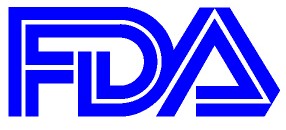Drug Side Effects: The Role of the FDA
 The U.S. Food and Drug Administration (FDA) is the primary governing body regulating the safety of all drugs released on the market. They approve all drugs before they enter the market and that approval process begins with the submission of a New Drug Application by a pharmaceutical company. The company must be able to provide clinical evidence supporting the new drug’s ability to work in the manner in which it was intended for and proof that it is safe to use. This evidence is obtained by performing clinical trials on the drug, testing it first on animals and then on humans; a drug must be proven safe and effective as well as offering more benefit than risk for the FDA to approve it.
The U.S. Food and Drug Administration (FDA) is the primary governing body regulating the safety of all drugs released on the market. They approve all drugs before they enter the market and that approval process begins with the submission of a New Drug Application by a pharmaceutical company. The company must be able to provide clinical evidence supporting the new drug’s ability to work in the manner in which it was intended for and proof that it is safe to use. This evidence is obtained by performing clinical trials on the drug, testing it first on animals and then on humans; a drug must be proven safe and effective as well as offering more benefit than risk for the FDA to approve it.
Reporting Side Effects to the FDA
The FDA encourages consumer reporting of side effects because many adverse effects are not discovered until after the release of a drug. All prescription drugs and many over-the-counter drugs are required to list a toll free number for the drug agency within the drug’s packaging. This number allows consumers to report adverse side effects that occur while taking a drug.
There are three routes available to submit voluntary adverse event reports to the FDA:
- Medwatch: Online reporting form
- Download a copy of the paper form and either fax it to 1-800-FDA-0178 or mail it using the postage-paid addressed form.
- Call FDA at 1-800-FDA-1088 to report by telephone
Consumer and Health-care provider reporting is crucial in helping the FDA gain additional information regarding unknown side effects and to garner insight into how a drug is faring in the real world based on consumer experiences. If reports are serious, the FDA will take action by either removing the drug from the market completely or by pulling and then reinstating the drug with additional warnings. Additionally, pharmaceutical companies are required to report adverse side effects to the FDA. If a company fails to report pertinent information, they can be prosecuted.
The strongest warning a drug can acquire from the FDA is a black box warning. This is issued when severe, life threatening side effects have been reported or if severe side effects can be prevented or reduced through proper dosage. Several of the popular antidepressant drugs, Paxil, Zoloft, and Lexapro, contain a black box warning because they may increase suicidal thinking in 18-24 year olds. Another example of a black box drug is Avandia, which is taken for diabetes. It can cause increased risk of heart attack or heart failure in individuals prone to heart conditions. Several Fluoroquinolone antibiotics such as Levaquin, Floxin, and Cipro are also black box as they have been linked to tendon rupture and tendinitis.



Add A Comment
No Responses